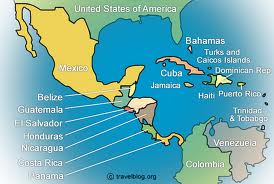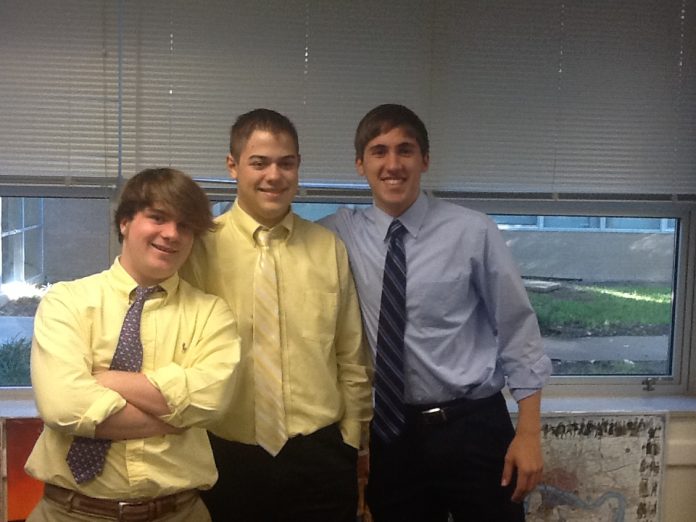To engage or not to engage? That is the question.
Via a poll recently posted on our site, we, “The Roundup” staff, relayed to you, the student body, a question posed to debaters across the country: whether or not the United States should economically engage Mexico, Cuba, and Venezuela. And your voice has been heard- loudly and clearly, at that! Overwhelmingly, you indicated a preference toward economically engaging these three countries.
About two-thirds of the respondents responded in the affirmative, while the remaining third chose the negative side. And those who favored engagement were notably more vocal in their opinions; while written commentary was not necessary to submit a response, about seventy-five percent of respondents who answered “Yes” offered some elaboration, as opposed to those whom answered “No,” offering far less feedback. This is particularly shocking considering that a poll, by design, naturally attracts only those adamant in their opinion, only those likely to offer a firm defense of their position.
“We should lift the embargo on Cuba for numerous reasons,” explains Erik Kirkegaard ’14. “We should cut tax rates on imports from these countries, making the U.S. look more attractive as a trading partner. The U.S. government needs to realize that the global economy is constantly flowing and not participating in specific countries or regions only harms the U.S. and its citizens.”
Chandler Dawson ’15 reflects this laissez-faire ideology, suggesting that the government lift its trading restrictions imposed on these countries as “their welfare directly relates to ours and the world’s perception of us.” He claims that the trio has “been misidentified in today’s media as being either evil, totalitarian regimes, or corrupt with crime and drugs,” a reference to the highly publicized drug cartels, “when really a lot of these cases are false.”
Yet, not all agree with Kirkegaard and Dawson; the debate team, coached by Dr. Tracy McFarland and Mr. Dan Lingel, attempts to analyze the issue from a holistic stance, constructing arguments for both the affirmative and negative position in preparation for monthly tournaments, where it competes with other teams from a multitude of different schools discussing a number of sub-sectors of the topic.
 To aid the team’s preparation for these monthly spars, Dr. McFarland and Mr. Lingel broke one of the most repeated childhood rules: they wrote on the walls. While many might recall the incessant, shrill screams of their mothers after observing the appearance of new, hand-drawn art upon the wall, the two debate coaches plastered A117, Dr. McFarland’s classroom, with a dry-erase paint essentially turning the walls into an over-sized dry-erase board, allowing the team to visually brainstorm, vigorously jotting down its ideas on that previously sacred barrier on which a marker or pen would have never before touched. This exponentially multiplies the space afforded by just one board, facilitating the depth of the arguments which the team needs to build.
To aid the team’s preparation for these monthly spars, Dr. McFarland and Mr. Lingel broke one of the most repeated childhood rules: they wrote on the walls. While many might recall the incessant, shrill screams of their mothers after observing the appearance of new, hand-drawn art upon the wall, the two debate coaches plastered A117, Dr. McFarland’s classroom, with a dry-erase paint essentially turning the walls into an over-sized dry-erase board, allowing the team to visually brainstorm, vigorously jotting down its ideas on that previously sacred barrier on which a marker or pen would have never before touched. This exponentially multiplies the space afforded by just one board, facilitating the depth of the arguments which the team needs to build.
“We write all over the walls,” says Dr. McFarland. “Some of our strategizing, our playbook, what kinds of arguments we would make, we do all of that strategizing on the walls in the debate room before tournaments; some of it is on-the-fly strategizing that we have to do at the tournament.” The team’s strategy even considers minute details, such as pairing the students with judges whose inclination might prefer one argument over the other.
In fact, during my separate interviews with each coach, both McFarland and Lingel often referenced the same details, word-for-word, with astounding precision- a particular instance, for example, in which the team benefited from some good fortune, its opposition, after winning a coin-flip, electing to argue the position which was actually the team’s weaker argument- a repetition that manifests the detailed mental construct which a debater must possess and the detailed arguments which he must present. The vast number of details which are contained in arguments are so numerous that many debaters speak hurriedly as an attempt to squeeze the necessary information into a given block of time.
Upon arrival at tournaments, the team is assigned a position, the affirmative or negative, for each individual competition in preliminary rounds, necessitating that each group develop points for each side. The elimination rounds, by contrast, afford the team a chance to choose the position with which it feels more comfortable; if the team wins the deciding coin-flip, it may select either stance to argue. However, according to Dr. McFarland, the affirmative “is home court,’’ meaning that the team will often select to argue for economic engagement.
rounds, necessitating that each group develop points for each side. The elimination rounds, by contrast, afford the team a chance to choose the position with which it feels more comfortable; if the team wins the deciding coin-flip, it may select either stance to argue. However, according to Dr. McFarland, the affirmative “is home court,’’ meaning that the team will often select to argue for economic engagement.
Dr. McFarland believes that the particular phrasing of the resolution affected the results of the poll, since many students associate economic engagement with basic, commonly flaunted capitalist tenets such as free trade and government restriction, tenets to which students are frequently exposed in a classroom setting. “A large portion of our student body would view it as positive to be able to trade, to set up businesses in those countries,” she explains. “They immediately would think of things like businesses and trade. [However,] there are other meanings of the term economic engagement. Part of our debate is actually using U.S. aid to leverage what Cuba does, but that’s not what most people think of. Even if it just said engagement, without economic engagement, that would have resulted in different responses.”
Mr. Lingel indicated a bit more surprise at the students’ willingness to engage countries frequently vilified in our media: “Given the historical way that Cuba and the recent way that Venezuela have been constructed in our media, I was really surprised that there weren’t a few more that responded that ‘We can’t help them, they’re evil!’.” In particular, John Bolton, a former U.S. ambassador to the United Nations, identified a group of nations including Cuba as an expansion of the “axis of evil,” a term first coined by President George W. Bush.
Yet, he also cites the benevolence of the Jesuit mission, which emphasizes inclusivity, and the globalization to which students have, as residents of the Dallas metroplex, become accustomed to as contributors to the poll’s results. According to federal Census data, Dallas is the fourth largest metropolitan area in the nation, predisposing students to “progressive” ideologies such as “free trade and exchange, natural to the kids in Dallas and even more so to the Jesuit student.”
“The debate topic shows you an issue from many angles and many guys can relate to that because here at Jesuit we encourage guys to look at things from many angles. [In addition,] foreign policy topics [are particularly interesting to a high-school student since they] always produce more wars and more battles; hands down, high school students prefer foreign policy topics to domestic topics. The [team has] only been debating this new topic for two months and they already [prefer it over the former topic.]”
Due to the geographical proximity of the United States to these countries, this year’s topic is particularly relevant to the high-school student. “There is a rich history of US involvement in those countries and we get to experience more of that directly,” claims McFarland. “There is also a lot of trade with Mexico that many people aren’t aware of; you just have to drive on I-35 and be around the eighteen wheeler trucks to see that NAFTA,” the North American Free Trade Agreement, “has an impact on people’s daily lives. This is an area- business, trade- that a lot of people could see themselves going into [as a career]; although there’s always discussion about India and China, a lot of US business is done in this hemisphere.”
Three countries. Two viewpoints. One resolution. Go!
Voice your own opinion below via Facebook, Google Plus, or Disqus!







